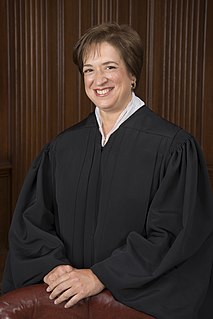Цитата Чака Грассли
Не следует ожидать, что кандидаты [в Верховный суд] заранее обязуются выносить решения по определенным вопросам определенным образом. Сенаторы также не должны просить кандидатов брать на себя обязательство решать вопросы определенным образом.
Связанные цитаты
Сенатор, мой ответ заключается в том, что независимость и честность Верховного суда требуют, чтобы кандидаты перед этим комитетом на должность в этом суде не предсказывали, не давали предсказаний, не давали намеков о том, как они могут выносить решения в делах, которые могут быть переданы в Верховный суд, .
Я очень горжусь нашим Верховным судом - он один из лучших в мире. Тем не менее, начиная с 1990-х годов, мы наблюдаем определенный дисбаланс в отношениях между судебной системой, парламентом и правительством. Верховный суд вел себя активнейшим образом. Мы должны обсудить, в какой степени такая активность Верховного суда уместна.
Суть олигархического правления не в наследовании от отца к сыну, а в сохранении определенного мировоззрения и определенного образа жизни, навязываемых мертвыми живым. Правящая группа является правящей группой до тех пор, пока она может назначать своих преемников. Партия заботится не о том, чтобы увековечить свою кровь, а о том, чтобы увековечить себя. Кто обладает властью, не важно, при условии, что иерархическая структура всегда остается неизменной.
Когда президент Дональд Трамп назначил судью Нила Горсуча членом Верховного суда, я сказал, что он заслуживает справедливого слушания и голосования. Я сказал это, несмотря на то, что республиканцы в Сенате разгромили десятки кандидатов в судьи от президента Обамы, а затем остановили кандидатуру президента Обамы в Верховный суд, судью Меррика Гарланда.





























